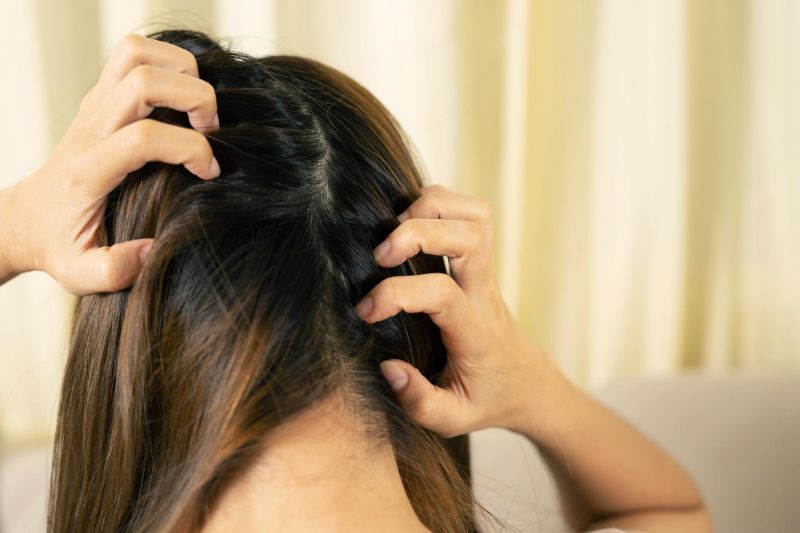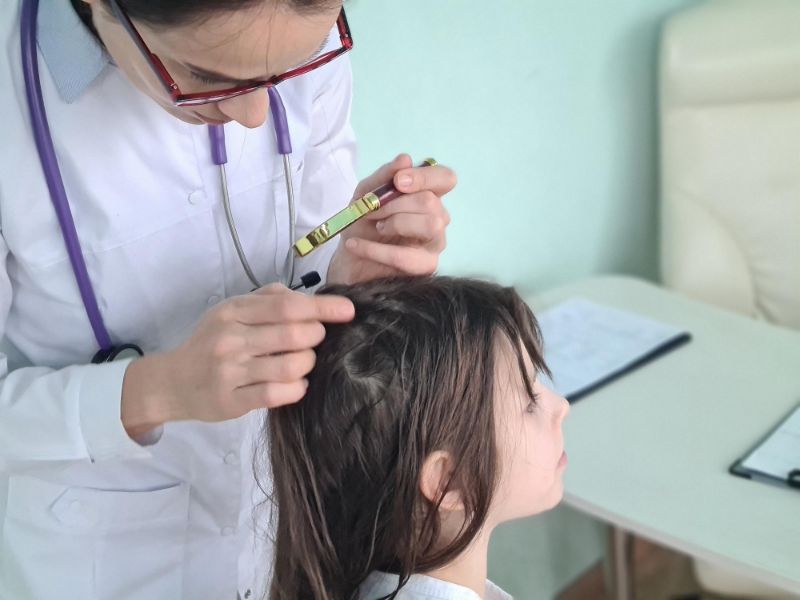Psoriasis is a chronic skin condition that affects the scalp, causing a buildup of scales and red, itchy patches. This condition can be both physically and emotionally distressing, affecting daily activities, self-esteem, and social interactions. Although the exact cause of scalp psoriasis remains unknown, it is believed to be related to an overactive immune system that mistakenly attacks healthy skin cells on the scalp. However, understanding the triggers that can exacerbate the condition can help individuals to better manage their symptoms and reduce the impact of scalp psoriasis on their daily lives.
In this article, we will discuss the best treatments for scalp psoriasis, and provide a comprehensive guide to help individuals find the most effective treatment for their individual case.
what is scalp psoriasis?
Scalp psoriasis is a chronic skin condition that affects the scalp and causes the skin cells to grow too quickly, resulting in a buildup of scales and red, itchy patches on the scalp. This condition is caused by an overactive immune system that mistakenly attacks healthy skin cells, leading to inflammation and the formation of plaques.
Scalp psoriasis can be a challenging condition to manage, as it can be both physically and emotionally distressing. The condition can affect the quality of life, making it difficult to carry out daily activities such as hair care, work, and social interactions. From mild to severe, the condition’s severity might vary from person to person.
Scalp psoriasis can be diagnosed by a dermatologist through a physical exam and biopsy if necessary. It is important to seek medical attention if you suspect that you may have scalp psoriasis, as early diagnosis and treatment can prevent the condition from worsening.
While scalp psoriasis is a chronic condition, it can be managed effectively with the appropriate treatment and lifestyle changes. Understanding the nature of the condition and its triggers can help individuals better manage their symptoms and reduce the impact of scalp psoriasis on their daily lives.
What causes Scalp Psoriasis?
The exact cause of scalp psoriasis is not fully understood. However, it is believed to be related to an overactive immune system that mistakenly attacks healthy skin cells on the scalp. This leads to inflammation and the rapid growth of skin cells, resulting in the characteristic red, scaly patches associated with scalp psoriasis.
There are several factors that may trigger or exacerbate scalp psoriasis, including stress, infections, injuries to the scalp, certain medications, and changes in weather conditions. Genetic factors may also play a role in the development of scalp psoriasis, as the condition tends to run in families.
Although the exact cause of scalp psoriasis remains unknown, understanding the triggers that can exacerbate the condition can help individuals to better manage their symptoms and reduce the impact of scalp psoriasis on their daily lives.
Symptoms of Scalp Psoriasis
Scalp psoriasis is a chronic skin condition that affects the scalp and causes red, itchy patches and flaky skin. Here are some common symptoms of scalp psoriasis:
- Red patches of skin covered with silvery scales
- Itching or burning sensation on the scalp
- Flaking or peeling skin on the scalp
- Dry scalp that may crack and bleed
- Soreness or tenderness on the scalp
- Hair loss in severe cases
- Dandruff-like flaking of the scalp
- Bleeding when scales are removed
- Nail changes, such as pitting or discoloration
Scalp psoriasis can also lead to feelings of embarrassment or self-consciousness, as the visible symptoms can be difficult to hide. This can have a negative impact on an individual’s quality of life, affecting their self-esteem and ability to carry out daily activities.

It is important to seek medical attention if you suspect that you may have scalp psoriasis, as early diagnosis and treatment can prevent the condition from worsening. A dermatologist can diagnose scalp psoriasis through a physical exam and biopsy if necessary.
If you are experiencing symptoms of scalp psoriasis, there are ways to manage and alleviate the symptoms. Treatment options include topical medications, light therapy, oral medications, natural remedies, and lifestyle changes. Consult with a dermatologist to determine the best course of treatment for your individual case of scalp psoriasis.
Diagnosis of Scalp Psoriasis
Diagnosing scalp psoriasis typically involves a physical examination and a review of medical history. Here are some common methods used to diagnose scalp psoriasis:
- Physical exam: A dermatologist will examine the scalp for signs of psoriasis, such as red, scaly patches or silvery scales.
- Skin biopsy: In some cases, a small skin sample may be taken and examined under a microscope to confirm the diagnosis.
- Differential diagnosis: The dermatologist may also rule out other conditions with similar symptoms, such as seborrheic dermatitis or atopic dermatitis.

It is important to seek medical attention if you suspect that you may have scalp psoriasis, as early diagnosis and treatment can prevent the condition from worsening. A dermatologist can provide an accurate diagnosis and develop an individualized treatment plan to manage the symptoms of scalp psoriasis.
In some cases, the diagnosis of scalp psoriasis can be challenging due to the similarity of symptoms to other scalp conditions. If you have already been diagnosed with another scalp condition but are experiencing persistent symptoms, it is recommended to seek a second opinion from a dermatologist. Discover the most common scalp conditions and learn how to treat them effectively by reading this informative article!
Best Treatments for Scalp Psoriasis
There are several treatments available for scalp psoriasis. These include:
Topical Treatments
Topical treatments are applied directly to the scalp and include shampoos, creams, and ointments. These treatments are effective in reducing inflammation and improving the appearance of the scalp. Some common topical treatments for scalp psoriasis include:
- Coal Tar Shampoos: These shampoos contain coal tar, which helps to slow down the growth of skin cells and reduce inflammation.
- Salicylic Acid Shampoos: These shampoos contain salicylic acid, which helps to exfoliate the scalp and reduce scaling.
- Steroid Creams and Ointments: These creams and ointments contain steroids, which help to reduce inflammation and itching on the scalp.
- Vitamin D Analogues: These creams and ointments contain synthetic forms of vitamin D, which help to slow down the growth of skin cells and reduce inflammation.
- Light Therapy
Light therapy, also known as phototherapy, involves exposing the scalp to ultraviolet light. This treatment helps to slow down the growth of skin cells and reduce inflammation. Light therapy can be performed at home using a special lamp or at a dermatologist’s office.
Oral Medications
Oral medications are prescribed for severe cases of scalp psoriasis. These medications are effective in reducing inflammation and slowing down the growth of skin cells. However, they may have side effects and should only be used under the supervision of a dermatologist. Some common oral medications for scalp psoriasis include:
- Methotrexate: This medication suppresses the immune system and reduces inflammation.
- Cyclosporine: Additionally, this medication suppresses the immune system and reduces inflammation.
- Acitretin: This medication is a form of vitamin A and helps to slow down the growth of skin cells.

Natural Remedies
Some natural remedies can also help to relieve the symptoms of scalp psoriasis. These remedies include:
- Aloe Vera: Aloe vera has anti-inflammatory properties and can help to reduce inflammation and itching on the scalp.
- Tea Tree Oil: Tea tree oil has antifungal and antibacterial properties and can help to reduce itching and redness on the scalp.
- Apple Cider Vinegar: Apple cider vinegar can help to reduce the itching and flakiness associated with scalp psoriasis. It has antiseptic properties that can help to reduce inflammation and prevent infections on the scalp. Mix equal parts of apple cider vinegar and water, apply to the scalp, and leave on for a few minutes before rinsing thoroughly.
- Omega-3 Fatty Acids: Omega-3 fatty acids have anti-inflammatory properties and can help to reduce inflammation on the scalp. Fatty fish, flaxseeds, chia seeds, and walnuts are all high in omega-3 fatty acids.
- Lifestyle Changes
Making certain lifestyle changes can also help to manage scalp psoriasis. These include:
- Stress Management: Stress can trigger flare-ups of scalp psoriasis. Practice stress management techniques such as yoga, meditation, and deep breathing exercises to reduce stress levels.
- Avoiding Triggers: Identify triggers that exacerbate scalp psoriasis and avoid them as much as possible. Triggers can include certain medications, infections, and injuries to the scalp.
- Maintaining Good Scalp Hygiene: Keeping the scalp clean and moisturized can help to reduce the symptoms of scalp psoriasis. Use a gentle shampoo and conditioner that is free of harsh chemicals, and avoid scratching or picking at the affected area.
Conclusion
In conclusion, scalp psoriasis is a chronic skin condition that can be both physically and emotionally distressing. However, with early diagnosis and treatment, it can be managed effectively. There are several treatment options available, including topical medications, light therapy, oral medications, natural remedies, and lifestyle changes.

One such convenient option is Remotederm online dermatology consultation services that can be accessed from anywhere, eliminating the need for long waits to visit dermatologists in person. It is important to seek medical attention if you suspect that you may have scalp psoriasis, as early diagnosis and treatment can prevent the condition from worsening.
FAQs
- What are some triggers for scalp psoriasis?
Triggers for scalp psoriasis can include stress, infections, injuries to the scalp, certain medications, changes in weather conditions, and genetic factors.
- Why is it important to seek medical attention for scalp psoriasis?
Early detection and treatment can help to keep the condition from worsening. A dermatologist can provide an accurate diagnosis and develop an individualized treatment plan to manage the symptoms of scalp psoriasis.
- How can scalp psoriasis affect an individual’s quality of life?
Scalp psoriasis can affect an individual’s quality of life by making it difficult to carry out daily activities such as hair care, work, and social interactions. It can also lead to feelings of embarrassment or self-consciousness.
- Is scalp psoriasis contagious?
No, scalp psoriasis is not contagious. It is a chronic skin condition caused by an overactive immune system that leads to inflammation and the rapid growth of skin cells on the scalp. It is not caused by a virus or bacteria, and cannot be spread from person to person through contact.
- Is scalp psoriasis hereditary?
Studies suggest that there may be a hereditary component to psoriasis, which means that it can run in families. However, not everyone who has a family member with psoriasis will necessarily develop the condition themselves. Other factors such as stress, infections, and certain medications can also trigger or worsen psoriasis.
